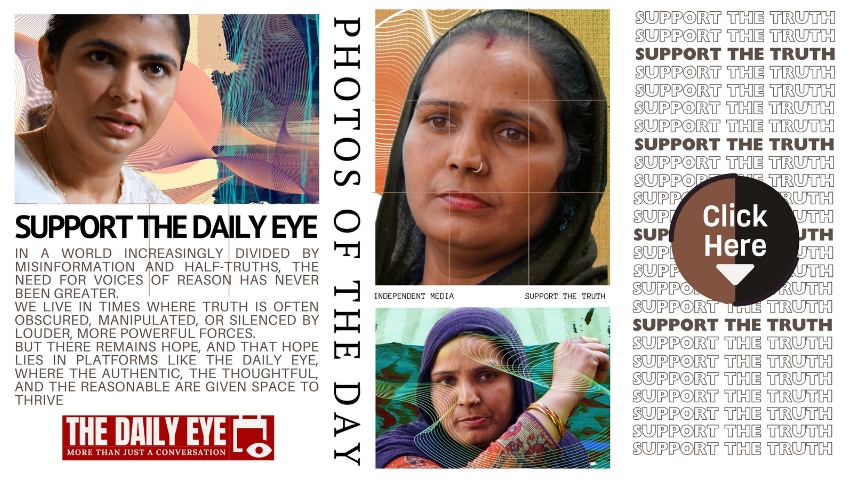-853X543.jpg)
GENDER: CAN WOMEN BE ‘EFFECTIVE’ LEADERS?
by Monojit Lahiri November 5 2024, 12:00 am Estimated Reading Time: 4 mins, 20 secsMonojit Lahiri revisits the rhetorical question and jumps across to a few women for their responses on why hasn’t the equality query been solved, despite eons of man-woman existence.
Exploring the intersection of gender and leadership, this article dives deep into the complex reasons why women, despite their proven capabilities and transformational leadership styles, often face unique barriers in achieving top-tier positions. With perspectives from future female leaders and established professionals, we examine the impact of emotional intelligence, gender bias, and cultural expectations on women’s advancement in leadership roles. Through the lens of activist filmmaker Aparna Sen, we redefine effective leadership to include resilience, empathy, and inspiration—qualities that many women leaders bring to the table. Discover the multifaceted reasons why societal perceptions still challenge women’s journey to the top.
Relax-feminists, libbers, bra-burners and the army of smart and successful women who are burning the top slot of their respective ‘spaces’ with mind-blowing work and professionalism! The article is not to question or challenge their proven commitment, focus, ability or capability in the area of performance or achievement…but to examine why (despite their proven track-record) the ‘big one’ eludes them. We asked a few people and the feedback was as entertaining as enlightening...

Women Leaders and Emotional Intelligence: Asset or Liability?
Poonam Singh, a young MBA aspirant believes that women have it in them to be “inspirational leaders because they use the Transformational style as opposed to men’s Transactional style. They are willing to listen, empathize and understand a colleague/subordinate’s problem.” However, Singh believes women have one “serious chink in their armour” – the aspect of emotionality. Unlike men who are focused, one-dimensional, business-like, and hard-core pragmatic, women can [and often do] goof up in taking important decisions driven by the heart, not head.
Another student, Eshani Jha stands the stated weakness on its head and emphasizes, “It is this very emotional quotient that makes her a better leader.” At the end of the day, she defends, it’s ‘people’ whom you lead – not computers, machinery, buildings, glass, concrete or stone – and therefore the inspirational leader is one who invests as much of the ‘heart’ as the ‘head’.
Historical Perceptions: The Role of Gender in Leadership
Media House executive (a working mother in her early thirties) Mridula Sahay approaches the issue with her cautious maturity befitting the station in life. “I would hesitate to jump to conclusions or unleash opinions without pulling back and seeing the big picture.” She believes that ‘leadership’ is something that is inborn and (like in men) you either have this trait or don’t. It is seldom acquired. “If this issue [vis-à-vis women] is raised today it is because lesser women are there holding down leadership-status appointments than men. The reason is basically historical. Women are perceived as the home-makers, while men are the providers, going out, doing jobs of work and earning a living. This places the two in different domains. Leadership – obviously – is more relevant and legitimate in the workplace and therefore it has (traditionally) been linked to men. Today, with more women breaking the glass ceiling to invade the once ‘Men Only’-space, questions like these will invariably arise. This represents a tacit recognition of women’s presence in the higher echelons of business and industry and augurs well for our future.”
The Ongoing Bias Against Women in Leadership
The critical question is: If leadership is about management, supervision, control, and guidance in an authoritative mode, women are born leaders because they deploy and leverage these traits, successfully, every day! But then, why is there still a huge coterie that does not perceive women as true leaders? “Rampant gender bias and sex discrimination,” says Priya, a New York-based IT employee for a multinational. “But there’s also the fear of experimenting at the top – women, by genetic makeup, cannot withstand the stress and work overload that men can. Therefore, shareholders feel extremely afraid to test out something totally new,” she adds.
Redefining Effectiveness: Aparna Sen’s Perspective on True Leadership
Fittingly, the last words are provided by an iconic woman who brilliantly fills several spaces with magical effectiveness, activist filmmaker Aparna Sen. “Firstly, we need to understand the meaning of the word effective. Popular (male) belief will equate it with success, related to result, performance, and achievement. For me, the word resonates with a different glow… it translates into the desire and ability to understand, mould, form, shape, and inspire ordinary people to extraordinary heights. It takes into account everyday women who languish in the shadows, an unsung and unheralded community, because they are not high-profile corporate divas. For me, they are more effective because, minus the massive infrastructure or resources of the workplace, these sublime creatures keep doing their stuff every day, rising above a million problems, fighting against all odds, to emerge victorious.”
Your turn, esteemed reader…..






-173X130.jpg)




-173X130.jpg)
-173X130.jpg)